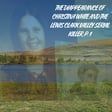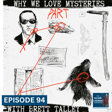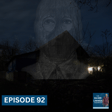Introduction of Guests and Case Overview
00:00:12
Speaker
This is a Silver Linings Handbook podcast bonus episode with Anya Cain and Kevin Greenlee of the Murder Sheet podcast. Several years ago, Kevin and Anya began covering what has become known as the Delphi murders. In 2017, 13-year-old Abby Williams and 14-year-old Libby Germain decided to take a walk on a trail in the woods to an old abandoned railroad bridge that locals often crossed in Delphi, Indiana.
The Delphi Murders
00:00:45
Speaker
As they made their way along the trail, they ran into friendly faces who remembered seeing them and they took pictures on the bridge. When it was time to come home, Abby and Libby were nowhere to be found. A day later, they were found murdered across the creek that the bridge went over. Police soon discovered a video that Libby took of a man approaching them who said to them, quote, guys, down the hill.
00:01:13
Speaker
The video cut off soon after.
Arrest and Trial Developments
00:01:16
Speaker
For years the case went unsolved until October 2022 when a local man named Richard Allen was arrested for the murders. Last month, two years later, Allen's trial began in Delphi.
00:01:29
Speaker
The case has been mired in controversy over law enforcement's handling of the investigation and the media, the role that true crime sleuths should play in active, ongoing investigations, and a leak investigation that led defense attorneys Andrew Baldwin and Brad Rosie to be kicked off the case before being reinstated.
Impact on Community and Justice System
00:01:52
Speaker
The case has become one of many that have sowed and cast doubt, at times quite unfairly, on the criminal justice system. In many ways, the media's role in true crime has spurned those doubts and has, even more tragically, re-victimized the families and other loved ones of Abby and Libby.
Media's Role and Responsibility
00:02:14
Speaker
It has also left the small Indiana town and surrounding Carroll County as another one of the many victims.
00:02:22
Speaker
I truly believe it doesn't have to be this way. Kevin and Anya have covered the Delphi case for years and joined me for this bonus in the middle of their ongoing trial coverage. Kevin and Anya have been open about the need for reform in the new media landscape, and we discuss that in this bonus, the town itself, and the remarkable grace of the family members of the victims.
00:02:57
Speaker
So Kevin and Anya, thank you so much for agreeing to come on and talk, especially as you're driving between home and Delphi on a Sunday and what has to be a a wild time. But, you know, i i well, first of all, I'm grateful for your coverage. um it's been It's been really nice to know that on a nightly basis, I could get reliable information about what was happening um in the in the Delphi trial, and it's cool to see that your listeners have really stepped up to help you
Listener Support and Community Trauma
00:03:33
Speaker
out. and It's been like a warm, beautiful thing to see, but um it it also means I'll get less messages from my listeners who are concerned about your wellbeing.
00:03:43
Speaker
but Yeah, but I think we were heading toward an intervention at some point, but ah we're very fortunate and we feel very grateful and um for for the listeners who just reached out and said nice things where we were actually helping us um sort of get into court every day and it's been really like heartening and just kind of very humbling to you because and just i i know i'm a I'm a person I don't really like asking for help. So I always feel kind of and guilty about it. um But people were very insistent that we let them help us. And I'm just like, that's- It's made all the difference in the world. It's super nice. Because right now we're in a situation where with court hands, there's already people lined up outside for the following day.
00:04:26
Speaker
So literally, if you don't have line sitters, there's no way you can do it every day. Oh, so you mean before you all get out of court for the day, there are already lines building up. How many seats are available ah to the public?
00:04:43
Speaker
Well, I don't know if we want to say that or I mean, like he's kind of hard to say. No, but what I mean is like, I don't want to like get a wrong number because it changes day to day because it all depends on how many people the prosecutors and the defense bring in. So like they have designated.
00:05:02
Speaker
And then sometimes it opens up and it almost seems like we're getting way more than you'd think. And there's no one who misses out. And then there's other times where there's fewer than expected. So it's it's really hard to predict daily. I mean, i would that's what I would say. Do you have a sense, Kevin? I don't.
00:05:18
Speaker
That's wild. it's what it's really i mean It's fascinating to me too and I definitely understand why they wanted the trial to be in Delphi in Carroll County. you know It's where the girls and their families are are from, but it's it's always amazed me. i think I think back to my days reporting that when a big event like this happens in a small town, how sort of like, not just the trial itself, but just how transformative it can be. And I was wondering, um
00:05:55
Speaker
if if If there's anything you guys could share about your experiences in Delphi and the community in general, and maybe the impact that the the the deaths of the girls and the subsequent events have had on them?
Perception Challenges and Law Enforcement Critique
00:06:12
Speaker
Um, you know, it's, it's, it's been, I feel like it's a collectively traumatized community in in some ways where, you know, not only have they had to deal with just the brutal murder of two kids who, you know, a lot of them knew the families of these girls, one knew the girls themselves, or at least you know if if they have kids and so they're sort of imagining what that were my kids out there that day but then you have you know just basically the true crime you know ah industrial complex churns that churns up the town um gets a hold of this case and basically uh you know comments that people just around town getting accused or this guy was on the trail that day maybe it's him and
00:06:54
Speaker
You know, and it's it's just taking something that's a tragedy, turning into an online circus, and now all that's coming home to roost um as the trial is going on in their town. I mean, we've talked to people with local businesses near the courthouse. Those are hurting because ah Delphi residents do not want to be around in the courthouse while this is going on because ah it's I think on some level, it's offensive to them and I can very much understand why. We can all tell ourselves, well, we're just trying to get information and whatnot and that may be fair, but from their perspective, this whole thing has just been turned into a clown show and it's offensive because it's to kids. I don't recall if we mentioned this on the podcast or not, but as you walk around town,
00:07:43
Speaker
go past some of the local businesses, a lot of them have signs saying no media, which is just a sign of how badly burned they have been by the media in the past. It's a town under siege.
00:07:57
Speaker
Yeah, you know, i it and i I get the idea that when events like this come, it can be a circus like atmosphere, right? You know, um for these people, it's their lives, it's their community. And I imagine like in a case like this,
00:08:16
Speaker
yeah The town itself the community itself can easily become a bit of a character and i i know you guys have talked about how that. Character of delphi doesn't really reflect the reality could you tell me a little bit about that.
00:08:31
Speaker
Sure, yeah. I mean, Delphi is it's a small city. It's technically a city um and in Carroll County. It's the county seat of Carroll County. And it's it's a small town. It looks like many other small towns in Indiana. It's ah it's a relatively safe place to be. um It has its share of crime and issues like anywhere else. But generally speaking, it's quite safe. This is a very much an aberration in terms of the the town's history which I think is what drew so much attention. Yeah for some reason a number of people online who try to format these conspiracy theories try to paint this town as being you incredibly corrupt. I've seen people online call it the most corrupt place on earth which is just nonsense and it makes the whole town
00:09:22
Speaker
it It makes it's very unfair to the town and it's it's inaccurate and it hurts ah it as a people. Yeah, it's just ignorance. It's like, you know, I think there's a certain level that I've come to find with true crime where people really like to pass around blame, especially if something goes unsolved for a while. So blame the police.
00:09:42
Speaker
you blame the the family of the
Media Influence on Public Perception
00:09:45
Speaker
victims, you blame witnesses, you blame maybe just the environment where it happened. So in this case, the town. And maybe in some cases, some of that is warranted, like it's often a case by case basis, but in this situation, um there's nothing dark or evil about Delphi. It's just a place where a very bad thing happened back in 2017.
00:10:07
Speaker
Yeah, you had a guest on recently, I cannot remember his name, but he was talking about small towns that one of the real challenges ah was that, you know, very big cities that are used to investigating high profile murders have the resources that may be desensitized to it a bit.
00:10:27
Speaker
But in communities like Delphi or Boulder, Colorado, where John Bonet Ramsey went was murdered or Moscow, Idaho, where the Ford University of Idaho students were killed, small towns like that are just not prepared to investigate crimes like this. It makes sense. It makes perfect sense, right? um But But I wonder whether some of what happens is when we're on the outside looking into a community like this, the same problem we all have, which is, well, I wouldn't have reacted in that way or the law enforcement in my town wouldn't have done it that way. Or, you know, I wonder whether we just sort of. In the process of
Complexities of Multi-Agency Investigations
00:11:11
Speaker
these things becoming entertainment, we flatten the people who are involved and we make them something a little less than human.
00:11:19
Speaker
No, you're so right, Jason. That's so well said. I think that was a Scott Thomason we were talking with, the former ATF agent who um you know has a lot of experience with this. I'm going to tell you something, and and this is a working thesis. it's I'm very much open to receiving more information on this through a trial and then through further reporting. But, you know, I think we all tell ourselves comfortable stories sometimes. I remember I had a religious studies from a college who talked about like, we have comfortable theories. These are theories that confirm our worldview and make us feel safe and and good. And one comfortable theory I see a lot is like,
00:11:58
Speaker
you know um Small town police buckle up and mess everything up and blah, blah, blah. and you know the The federal folks will come in and fix the whole thing. When you look at Delphi, it's it's more of a complicated picture because there was a federal presence very early on, um very early on into the investigation. There were state police in there, county officials, ah locals, everyone was on this.
00:12:26
Speaker
and what i' What I'm seeing as we're hearing this all had pulled through trial, and this also matches our previous reporting, is that there was a fatal mistake with this case in that an important tip got misfiled. To me, and if I look at that, I don't know that that's local law enforcement that's at fault there. I think there may be an issue with maybe too many people got involved in terms of too many agencies.
00:12:53
Speaker
and things kind of and and ah all it takes is one mistake like that and it's a huge issue and so when I'm looking at that I'm like I don't I don't know if that's like a county thing versus an FBI thing I think that might just be like human error and unfortunately maybe if that had happened to a dozen other tips it wouldn't have mattered but in this situation it really did matter and I yes I'm just kind of like I don't know how much you know it's like how do you undo that? How how do the investigators like dig up a tip that they don't know about because it was misfiled at the very beginning and never followed up on? it's like kind of like It's hard to blame any one person for that, but it also is frustrating because you're like, that's that was a very important misstep. and The thing that I go back to is
00:13:42
Speaker
everyone wanted to help find these girls. And then when they were found dead, everyone wanted to help find their killer. And I'm talking about the public, all these law enforcement agencies, all of these you know different contiguous counties, people. And maybe there's something to be said that all of that is very well intentioned, but it can lead to things getting buried under the heap of data that forms when something like that happens.
00:14:10
Speaker
Yeah, no, i I think there's probably a lot of truth to that in my experience. And we all know when multiple groups of people, whether it's law enforcement or otherwise, have to work together who don't normally work together, you know, you're more likely to have things fall through the cracks. I remember, you know, you mentioned that idea of sort of like that myth of the federal government. And I was talking to an FBI agent recently, a former FBI agent who said to me, you know, we don't do murders, right?
00:14:38
Speaker
but And I was like, thanks for the reminder. You guys actually don't do murders. They rarely are involved in it. And I think some of it is exactly what you're saying. ah But I think some of that mistakes that are made or, you know, ah whatever it may be, mistakes that are made or perceptions that there are certain kinds of mistakes are sort of leveraged against entire communities. We probably see the same thing right now in Canton, Massachusetts with the the Karen Reed trial, where essentially the community has become another victim.
00:15:17
Speaker
not Not to minimize ah the deaths that occurred, but um I had a a um ah victim's family member describe it to me. he was um His sister was killed in the Colonial Parkway murders in Virginia, and he said, it's like a pebble that drops in the middle of a pond. The thing that's most affected is the pebble, and that's the victim, but that there are these ripple effects.
00:15:46
Speaker
And you know maybe we pay a little attention to the loved ones, but it's their other loved ones, their communities, all sorts of things long after the true crime fans are gone. um The reverberations of that peal pebble still exist. and just and And he made a great point. His point was, why would you want to cause any more ripples than that water?
Critique of True Crime Content Creation
00:16:11
Speaker
fun for some people to engage in antisocial behavior when they can get away with it. And then it's also, uh, you know, and some people will come in and basically make money off of catering to those people and giving them, you know, the sort of.
00:16:25
Speaker
true crime conspiracy swap that they want. it you know It's like and then of course then everyone else in true crime it feels like sometimes when they're witnessing that happen you know like you know you don't want to alienate someone and then not get a promo swap out of it so nobody says anything and and and that's that's something that's incredibly frustrating to see because it's like I think personally that as true crime creators, I know you and I, Jason, and Kevin have talked about this so many times, and I think we're on the same page, but i don't I don't feel like there's any much much of a wider movement around this. I think when people are engaging in that sort of toxicity, they don't have a place
00:17:04
Speaker
in our community, and that's not okay because it does hurt real people. This free speech, obviously, i'm I'm very much a proponent of free speech. I'm not saying you know people shouldn't be allowed to say what they want, but I don't think that they should be like welcomed to places like CrimeCon and and sort of that you know taken out in the town by other creators. and I think they should be sort of looked at as a pariah. I think one thing worth noting is that this This Delphi case is something we've worked on for years at this point. And so the people who are caught up in it, they are real people to us. We've talked to them, we've got to know them, and we know how they are affected by some of this garbage and lies and such that are put out there about them falsely.
00:18:01
Speaker
And so because of this, it it seems a lot more serious and, you know, it's not abstract. We know for a fact that the lies certain people put up out there are hurting real people. And I think some people who come into it later and haven't got the opportunity to get to know some of these people may not fully understand how much real people are being hurt by this.
00:18:26
Speaker
You might be a little too generous, Kevin, because at the end of the day, like we can all put ourselves in the shoes of another person and imagine what it's like to be accused of something or um to lose someone that we love. I mean, suffering is so unbelievably universal. And sometimes I think that if people would think about what other people were going through before they start typing, before they start speaking on their channel or whatever it is. um just Just ask yourself, what will this feel like for the other person or what is it like for them? um And I understand what you mean. You've actually met these people, but I don't think anything about not meeting someone
00:19:17
Speaker
uh, prevents you from being able to put yourself in the shoes of a, of a, of a fellow,
Responsibilities of True Crime Creators
00:19:26
Speaker
of a fellow human, which sort of brings me to is tying that back to tying it back to the point Anya was making before. I think ultimately the problem, problems related to I think a lot of the media related problems we see in True Crime and we see in the other spaces right now are ultimately going to be solved by the readers. They're going to be solved by the listeners and they're going to be solved by the viewers. But the real problem is that the readers, the listeners and viewers, it will take them a long time
00:20:02
Speaker
to figure out that they're being fed B.S. if other creators do not stand up and call it out. And I heard a sense of frustration in your voice as you were describing, I guess, some of the silence, and it's a frustration I share generally more about that.
00:20:22
Speaker
Um, yeah, I feel very bitter about it on some level. It's like, I guess, you know, I'm coming from a journalism background. Uh, there, as, as, you know, there, there can be a lot of things that go wrong in journalism, um, very much so. And frankly, me being one of them.
00:20:38
Speaker
i'll be you ah love your tears right now But like but it's like even stuff like just getting stuff wrong or you know having a bias, like there's there's stuff that happens at every level in every industry no matter what. So I'm not asking for perfection from true crime. But some of the stuff that we've seen and in this new media has been just like outright libel,
00:21:02
Speaker
slander outright, just like harassment, people doxxing each other, people calling for others to be harmed, people threatening each other. And it's like, it's so far removed from any sense of professionalism i um that I, and it's also, you know, and then you have the people who are maybe not engaging in that, but are basically feeding that part of the community what you know whatever lies or spin that they want to get and it's like you know ah but you know it doesn't really seem like there are any sort of professional consequences for the people doing that and it is frustrating you know I'm not like sometimes sometimes I feel like
00:21:42
Speaker
You know, like I got my losing my mind here because like it's like we're seeing the same people kind of treat these things like they they could come in and be the ringleader of the circus and make a lot of things worse, spread a lot of them misinformation. think You know, it's like, you know, I get that no one is perfect, but there's like there's mistakes that are honest mistakes. And then there's like getting stuff wrong to the point where you're just actively lying to your audience.
00:22:05
Speaker
And um I just feel like there's a lot of apathy within true crime amongst the creators. And and Jason, you're one person where i i always like you always are standing up for what you believe is right. We try to do the same and emulate that. I know of a few others who do that. But generally, there's way too much silence about this. And there's a certain point where like those people should not be allowed to feel comfortable doing what they're doing.
00:22:29
Speaker
And, i you know, I think also the conspiracy theories, particularly the ones that can be harmful to, let's say, the victim's families or, you know, even the law enforcement officers or even to the defendants, whoever harmful conspiracy theories, if you had asked me, I don't know, a year ago,
00:22:50
Speaker
I would say that part of the reason why most creators are not criticizing the creators who are doing this is because they simply just don't know about it. They're not paying attention. I i have come to a darker conclusion in the last six months that it is an intentional compromise that some people are making.
00:23:13
Speaker
um because of exactly what you're saying. And I'm not saying this is everyone. um They don't want to necessarily alienate um people. And it came to head for me this year in watching, actually related to the Delphi case, which I don't think I've talked to my listeners about this, but um there was kind of ah controversy about using the girl's names in a hashtag.
00:23:37
Speaker
And I reached out to certain creators that I perceived were very close to victims, family members, who were supporting a creator who was misusing um, the girl's names and the pushback that I got and then heard through the grapevine certainly suggested to me that these people who were, who I perceived as close to the victim's families were, were well aware and they were just trying to walk the tightrope in between. And you know, so for me, I, I, I'm, I'm beginning to feel that it's going to be a small set of voices that are going to have to be loud.
00:24:18
Speaker
like your yeah that are going to change change the paradigm. I don't know. I want to tell you. Oh, sorry. god Oh, I don't know if you heard Brett Nallis last night from the prosecutors ah podcast talking about some of the conspiracy theories, um particularly those related to Libby's sister, Kelsey. And I'll tell you what Brett said, even though I don't use this word, he said basically all of you creators and people who believe some conspiracy theory about
00:24:50
Speaker
the families being involved.
Commitment to Truth and Ethical Reporting
00:24:52
Speaker
You don't need to be educated. You don't need more information. You're just assholes. yeah and yeah and it's that Amen. And I'm going to, you know, I've been, I told this to Kevin the other day, Jason, this is like a very stupid quote, but Kevin and I both really enjoy the sitcom community and they did a law and order episode spoof. And the opening was this, and it just made me feel like this is what, this is what true crime is sort of becoming. It's a Greendale community college is made up of the goofballs that run around stirring up trouble and the egg heads that make a big deal out of it.
00:25:26
Speaker
and I'm like, we're definitely the eggheads that make a big deal out of it. But like these goofballs are actually stirring up trouble that is like actually actively hurting real people, and it's needless. and Frankly, you know sometimes it it just gets so ridiculous, like especially in Delphi, you know we've had a lot of criticisms to share about Judge Francis Gull and some of her public access decisions, and those are very, very sincere. and You can disagree or agree with us or whatnot,
00:25:54
Speaker
But then when other people are coming in and saying, oh, Judge Gull is sending bind waves to tell the prosecution what to do, and she's a she's you know handcuffing the defense with all this, you know like because she's the chief odinous of Indiana. you know it's like frankly like The reasonable criticism actually gets lost in that, and then we lose a valuable opportunity to have a conversation about public access because we're getting screamed down by people who are just treating this like it's like
Audience Influence on Content Norms
00:26:24
Speaker
I don't even know. like It's wait entertainment that's removed from reality.
00:26:28
Speaker
yeah It's more like a wrestling match. And everyone in this case, the judge, the defendant, the defendant's wife, the um victim's family members, everyone the law enforcement officers, everyone has been criticized in ways that I personally find cruel and unnecessary to tell the stories.
00:26:54
Speaker
um and I think there may be truth to your point that when people turn other people's lives into entertainment, they feel like they have the license to do whatever they want with it, that you're not really a human.
00:27:11
Speaker
and and i think i mean There has to be, I would imagine, some kind of reckoning that has to happen um for things to get better. Can you see a ah way of that happening? I'm not sure I do, because as you've said, even the creators out there who purport to be victims, advocates and purport to care about such things, they're not speaking up.
00:27:40
Speaker
They're keeping quiet because they don't want to offend people who they may see as peers. Or to be honest, they don't want to alienate the people who listen to those shows because if they're afraid, their own audience will decrease. If there's any hope at all, I think it has to come from the audience that maybe when they recognize that certain people are doing things uneffectively or using the names of the victims to try to raise money for the person who is charged with killing them.
00:28:10
Speaker
If the audience sees these sorts of things and stops giving them their clicks and downloads, that's the only thing I see that can make a difference. Yeah. Take away people's money and you're going to see change. Otherwise, no. There's not going to be any change. As long as people are basically being compensated for their bad behavior, the bad behavior will continue. By compensated, I don't even just mean money. I can think of a lot of yeah tension exactly attention is currency and that is something that a lot of these people thrive off of and if you basically leave them
Resilience of Victims' Families
00:28:41
Speaker
alone in the dark then they slink away but if you're if you're on there fighting with them or even if you're just criticizing them that's still attention it's still giving them what they want on some level.
00:28:52
Speaker
i kind of you know I think there's an element to this, particularly for the anyone who's going to be on the front end of fixing this problem, where it's going to require an element of courage. you know There is a time and a place, as I like to tell my friends, that um this is why I'm a terrible businessman.
00:29:12
Speaker
I remember saying to one of our very large clients once, I was complaining to them about how poorly my employees were being treated. And they were like, well, there's nothing we can do about it. It's the boss. And you know, they're the ones who's in charge of the contract. And I was like, I will live on a tent.
00:29:31
Speaker
in a tent under a highway before I let you guys do this. but So i I think there's got to be a moment where people are willing to sacrifice something, ah whether that's financial or it's attention or it's other listeners, to do the right thing. And it may not be popular and you may lose something for it. But ah what I'll tell you is I am sure you will sleep better at night if you have a conscious.
00:30:00
Speaker
Um, and you do those things. I was going to ask you guys just a little bit about the experience of covering the trial. We talked about, you know, there are wild lines and, um, all sorts of, I imagine interesting people. What has it been like to cover the trial other than not getting much sleep? Oh gosh, it's great question. Um, it's been, you know, it's been, it's been rough. It's been rough. Uh, the, the emotional,
00:30:29
Speaker
The emotional content, I guess, what for lack of a better word of the days, is very disturbing and upsetting. And one day I actually got so overwhelmed I basically just had to leave because I just couldn't. We were like, you know, it's crime scene photos. And so I was just like, you know, and and it's been even days where they're not necessarily that horrible.
00:30:48
Speaker
Um, there's just, it's just very sad and you're sitting across or, you know, from, or behind, uh, the victim's family members who have just been put through hell. And it's just, it's very upsetting. Um, on the lighter side, it can be nice to talk to some of the folks in line and get to know some of the people. And we've met some certainly very nice and interesting people. And so that's been, that's been a bright side to it. And we we appreciate those conversations. I think everyone's trying to keep, you you know, at least most of the people that are trying to keep each other sane.
00:31:19
Speaker
but and There are moments that really remind you of how good people can be, and they remind you something about triumph out the of the human spirit because the families of the victims, we can't even begin to imagine how difficult this must be for them. But they are noticing all these people standing in line,
00:31:45
Speaker
and they are taking it upon themselves to try to take care of them. Most evenings, one of for the family members, the victims will come by in the middle of the night and will give food to the people standing in line. And I'm sure they're well aware that some of the people they are giving food to are people who have caused them grief in the past, but they don't care. They just look at that and say, this is a line of people who are here because in some way they care about people we've lost and we want to help them.
Emotional Toll and Support Networks
00:32:12
Speaker
Yeah, I can't imagine ever being that forgiving or kind. Because I think if I were them, I would be curious. And and what great they just time yeah they're They're the embodiment of grace, honestly. They're amazing people. I don't think I could do it. Yeah, I can only imagine. i And, and um you know, i think I think there's something about laws, like they have probably experienced
00:32:42
Speaker
a loss that's hard for, I mean, to lose your children, your grandchildren, hard for people to imagine, fathom, but there's probably something about loss that puts things in perspective. you know you're You're not necessarily happy with what everyone's doing, but I i bet you see humanity in a different way.
00:33:03
Speaker
And, you know, and listening to your coverage too, I've noticed moments of levity, ah the security personnel wearing orange shirts and yeah on Halloween then and other moments like that. But but ah I remember that from my reporting that if you reported it enough on like a big case or a trial or something like this, you it become this weird kind of family. Not everybody in the family is loved. You've got the crazy uncles over here and, you know, inevitably so It's someone is off the rocker. But but there can be this sort of camaraderie that can come from it. The ah I think another thing in thinking about covering a trial like this, I think, you know, people have a hard time understanding the exhaustion. It's constantly on, constantly thinking. You constantly have to, you know, you're constantly reporting, but you're also checking your own reporting and verifying things. ah What's your daily process like and how do you stay on top of it?
00:34:02
Speaker
Um, it's a good question and honestly I mean one problem with some of the media coverage and and this is really not any individual reporters fault it's kind of just a systemic issue that's affecting a lot of outlets I think have done good coverage it's just you know it's just the way the nature of the beast.
00:34:19
Speaker
that they're not as familiar with the case see like the people who are like the online people they're very very familiar with every aspect of the case but they sometimes have a hard time communicating the big picture whereas the traditional media gets the big picture but then they get all the little details wrong so because they don't know who's who or what what the relevance of this is.
00:34:38
Speaker
And so we've seen like you know some pieces that come out that are just totally riddled with errors, but it's like you understand how that happens because they're not able to necessarily. They're basically running out to go on camera or to file a story and they're not.
00:34:50
Speaker
really checking and they don't really know how to check. So so what what we do is we kind of just rely on like hopefully one of us will get it right and then we'll kind of compare notes a bit. um And ah frequently after court we'll talk to other people who were there just to get their general impressions. to see You know, we've met some very nice folks who are other covering up their channels and stuff. And so sometimes, you know, we'll all be gathered up like, oh, wait, did you get home and saying that? Or did he say that? Or was Baldwin asking this question first? And so there's sometimes an opportunity to make sure that, you know, you have it right.
00:35:25
Speaker
um but way Or even is this this guy? i I'll never forget when when I was at the Times and I would go into a small town to cover a story. I had this ah boss who told me first thing you need to do is you need to go find the local reporters who have been covering this case because they are going to save you from every one of your horrible mistakes.
00:35:45
Speaker
Yeah, that's exactly right. That's exactly right. And like, you know, and, and it's, that's, that's a situation where Kevin and I don't, you know, if I, if I sense it, uh, uh, a big quote coming or a really kind of like, wow, you know, quote coming, I'll try to get that verbatim, but otherwise I'm just trying to sort of synthesize the the content and I'm not necessarily, you know, so I kind of like, you know, and because also you can't hear and you know, like it's the, the acoustics are terrible.
00:36:13
Speaker
So if I'm even a little bit unsure of what was said, I just kind of either put a question mark next to it or I don't put the quotes around it because I don't want to misquote anybody. Hmm. I wanted to ask you guys one more thing. I wanted to ask you, having gone through this experience of
Call for Ethical Reform in True Crime Media
00:36:31
Speaker
covering the pretrial since the arrest, covering the trial itself, I'm sure you've learned a lot about true crime, about media coverage, about you know, your audience about all sorts of different things, the victims' families. If you could take any sort of lesson out of this to make this world or this space or the broader world a little bit better, if I gave you somehow the magic wand I want to create, what what is it you would change? Not yet.
00:37:09
Speaker
uh youtube delendim asked uh that's kind so uh at kato the elder would always stand up at senate meetings and say Carthage must be destroyed and so i'm not saying we've actually met some really wonderful youtubers uh like just awesome people and ah we're gonna probably shout them out at some time on our show. But like they they came into this cold and they've done such a fantastic job. ah like so like There are people on YouTube who are wonderful. i but There's a couple of YouTubers that we know who who do great work. I'm not really talking about the website so much as What I feel is the sort of underbelly of the website where you have the culture that's sort of been created around true crime creation there. Yes. Yes. it's It's really bad. It's really toxic. And I don't think the same thing exists on stuff that are more on the podcast side. And I think that largely has to do with it.
00:38:01
Speaker
You're not getting as many recommendations like it's not like if you get my click on something that's like some sort of extremist viewpoint on youtube then suddenly my whole algorithm is pushing me further down this like radicalization right and so i think that happens to a certain extent with with true crime on youtube so.
00:38:17
Speaker
I guess it would be nice if if the people at Google would understand that and probably you know take some time to emphasize the responsible and good creators and de-emphasize all the garbage, but they're not going to do that because that that's they don't want to get into editorial stuff. so i mean That's an impossible dream, but i would I guess I would really encourage people, you know if someone's going out there and putting out all this stuff and like, oh ah you know very sensationalized coverage. I think um that's a time to really be skeptical, even no matter what their background.
00:38:52
Speaker
And you know, I know one interesting thing about where you were saying there, I was I was thinking, yeah, that would be a tough sell to YouTube. But Facebook used to say the exact same thing until the 2016 election. um And not that Facebook is perfect, but it's changed tremendously because of the consequences of that. So I wouldn't I wouldn't I'd hold out a little bit of hope. Hopefully. Okay. no it that yeah how about that How about this? I'll tell you the same thing I tell all my friends who refuse to hold out hope. I'll hold it for you and it'll be here and then you need it. I'll give it back. That's so nice. Thank you Jason. But Kevin, did you have anything that you're hopeful about that could make a good change in the world? I would love it. And I think this goes back to something I said earlier. I would i would love it if people were just able to remember
00:39:46
Speaker
that all the people in these two prime cases that you read about or hear about, they are real living and breathing human beings who have undergone one of the worst tragedies in their lives and they deserve passion and grace and maybe keep that in mind before you start excusing them or spreading rumors about them. They deserve your sympathy. Yeah and and and you know if someone's out there attacking a victim's family That's probably, you know, and listen, and and Jason, you know this, and Kevin and I know this, but in some cases, you know, a family member might be the perpetrator, right? Like, you know, like, what I'm talking about just in something that's an unsolved mystery, just going out and hammering family members or hammering them a trial or or whatever, that's a bad sign. Like, that's, that's not, that should be a red flag.
00:40:41
Speaker
I love the comic strip Peanuts. I think almost everything in life could be have a perfect Peanuts strip to encapsulate it. And at one point Snoopy was writing a theology book, which he called, Does it ever occur to you that you might be wrong? And keep that in mind before you start spreading rumors or theories, implicating family members in some of these cases. But here's the problem, Jason. You have cultivated a very smart,
00:41:10
Speaker
I think compassionate audience because that's what you're putting out into the world. So us telling them that they're they're probably not doing that anyway like I don't I'm not concerned about uh the silver linings handbook folks going out and accusing people it's like how do you reach the people who are stuck in this echo chamber where it's just nastiness and meanness and and sort of conspiracy theory, it sometimes feels like it could be very hard to reach them and and sort of pull them out of that. And i don't I don't know the answer to that. Maybe a smarter person than I could figure that out. But I think, you know, with with our audience too, I'm very proud of our audience. I feel like they're smart people who are engaged and are compassionate and like maybe they can disagree on things, but they can talk about that like adults. And I feel like
00:42:02
Speaker
the wider true crime space is not always like that. And I just, I don't know how to fix that beyond there being a wider coalition of creators who are essentially getting together and saying, this is not okay. And ah something should be done about it. But I, I don't, I don't have the, and I hate sounding so bitter on this. Like I, it's just that this has been so eye-opening about like how bad it is. And I just,
00:42:30
Speaker
I hate that I feel that this is just what true crime is going to look like for the time being for a while. Well, I have a thought about maybe some first steps. I think I would hope that you guys will continue to tell these stories of the dark and the bright side of true crime and its impact on people long after the national news media, the news trucks and the big papers have moved along because I think it's one thing to tell these stories in the heat of the moment.
00:43:05
Speaker
Um, but, but I think being able to tell them on a bigger level and advocate for these things on a bigger level is important. And I agree with you. My listeners, your listeners are probably less likely, um, to be a part of some of this bad behavior toward people like victims families. But the thing I would say is.
00:43:25
Speaker
Each one of my listeners knows somebody who knows somebody who knows somebody. And so if they're aware of this, and if we're bringing it into their consciousness, in that moment where their friend or someone who's an acquaintance says or spreads something cruel, they've got an opportunity to do their one tiny part. I might be preaching to the choir, but if I can energize the bass,
00:43:53
Speaker
to go out there and raise the issue with the people who are close with them, we can make a little bit of a difference. So I'd say keep on talking about it. I love that. I think that's a really great idea. And it's like, and it's it's a small thing, but it, if if you know, it it actually does it make a difference in those human conversations and hearing it from someone you trust. And I don't, like when I, when I look back at my early true crime consumption,
00:44:21
Speaker
phase, you know, I was, I think listening to it more uncritically, and I would, you know, I might take a ah ah creator's opinion far too seriously without really examining all the underlying facts. Or, you know, I might be like, Oh, well, you know, they mean that some guys sound guilty. So I bet that's true. And I certainly wouldn't be posting about it, right. But, but some people do. And I can understand why, because it's very easy to get sucked in.
00:44:45
Speaker
um by new media in particular. I mean, it's like, it's people talking in your ear telling you these things. It it feels like you can trust it. They seem smart. They seem... Right.
00:44:56
Speaker
And it's like, that's why I always tell people with us. They're like, Oh, I, you know, I listen to murder sheet for all this stuff. It's like, thank you so much. And we're honored by that. But you could also, you know, like balance it out with some local coverage. Like look at the local newspaper, look at the local TV stations too. Maybe we get something wrong with they get right. Or maybe we have an opinion and they're, you know, like it's just it just, it kind of just spreads it out a little bit more. So you're getting that kind of well-rounded media diet.
00:45:21
Speaker
Yeah, and to the credit of listeners, not to beat up on listeners because a credible creator looks like an absolutely uncredible creator. In the beginning, they look exactly the same. by it and So it takes time to figure it out. It takes listening. It takes critical thinking. It takes what you're saying about checking it ah with multiple sources. um There was one other question I totally forgot.
00:45:48
Speaker
And I've had this question several times and I haven't asked you, um, but several of my listeners have asked me and your listeners, are you guys going to take a vacation after this have vacation? What's this? What's this term? I don't recognize that word. Give me a Webster's. Let me see. What's this language? You're talking the English professor.
00:46:12
Speaker
but This vacation thing is time that we take off for ourselves, where we relax and we explore and we don't work. Does that help?
00:46:25
Speaker
We may try. We may try. um We've tried the past, hasn't really worked. down. We Delphi does have a way of kind of, you know, we feel obligated to kind of drop everything and do it. um I will say, we are working on a book about the case. So that may also hinder vacation plans. But we'll probably take a little breather at least, right, Kevin? I hope so.
00:46:50
Speaker
We'll take a breather. We'll take certainly a breather, maybe a vacation, ten if we can, and if we can spring it. um but it's But it's very nice to be wacky. And just like, we're okay. I know we sounded completely out of our minds the first couple days. And I apologize. I think we scared. I think we scared all our loved ones and our audience and, um you know,
00:47:13
Speaker
ah You kind of got to see more of our sleep deprived personalities, but but we're we're really doing okay. And we've gotten a lot of help from just a lot of lovely people. And that's attitude but grateful. A lot of lovely emails. A lot of lovely emails. And so we're we're okay. definitely um Definitely keep the families of the victims in your thoughts and just Delphi in general in your thoughts. But I think we're we're all right.
00:47:36
Speaker
Yeah, I i yeah people have been like, oh, you guys are doing a lot more banter lately. That's not a conscious voice. It's just we're kind of a little bit, even though we are getting a little bit more sleep, you know, it's it's long days. and I think we're just a little bit goofy at the end of it. It's not we're not trying to be silly. It's just like sometimes Kevin will say something. and I would start cracking up. It's, you know, that's that's the state of she and I think after this trial is over, we may after this trial that we may be too tired to do a
00:48:12
Speaker
but my feet I'm Jason Blair and this is a Silver Linings Handbook podcast bonus episode. We'll see you all again soon.




















